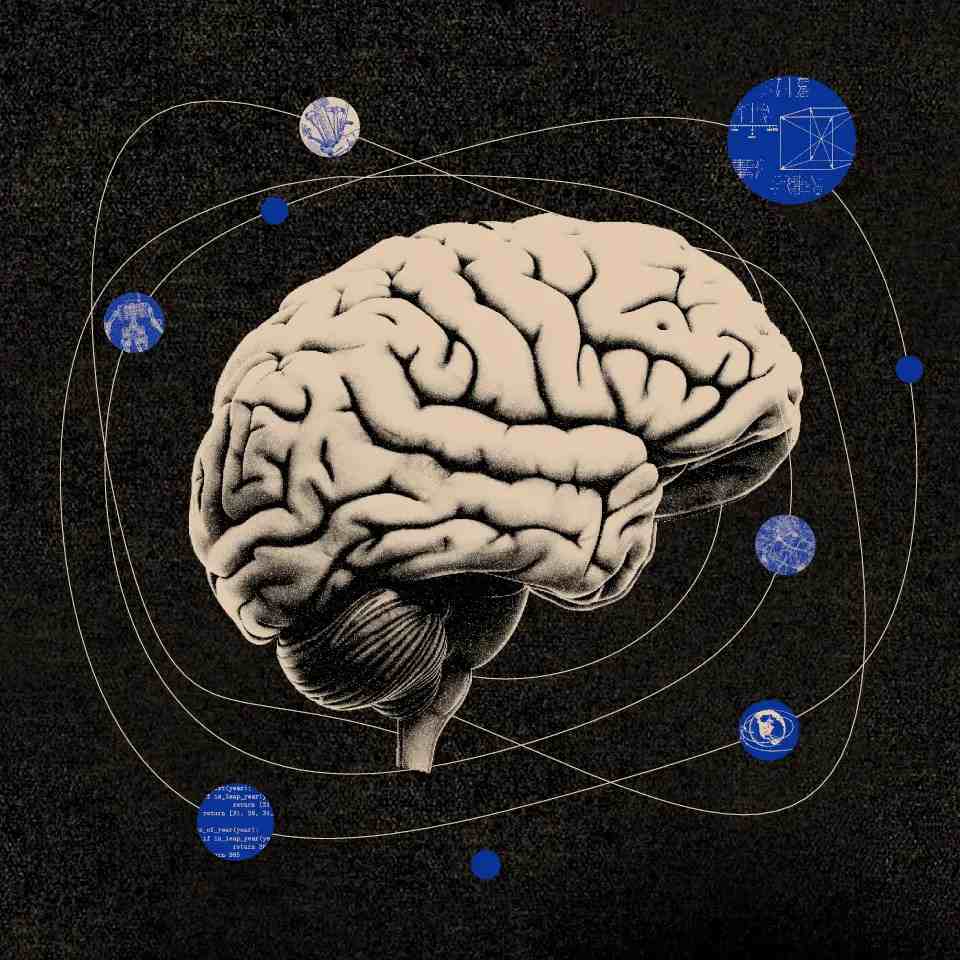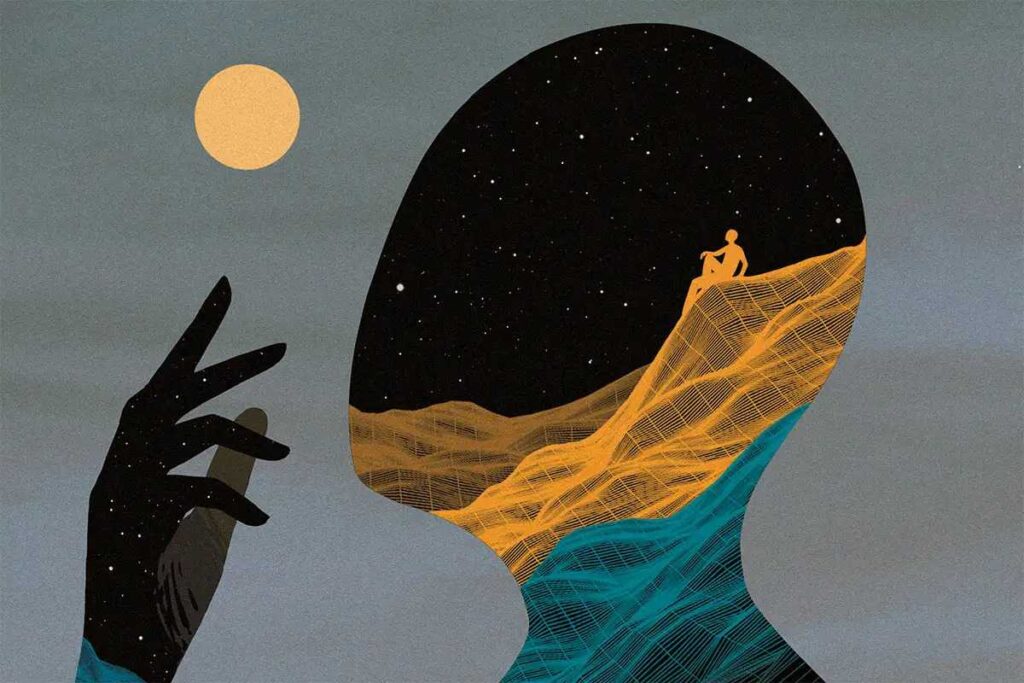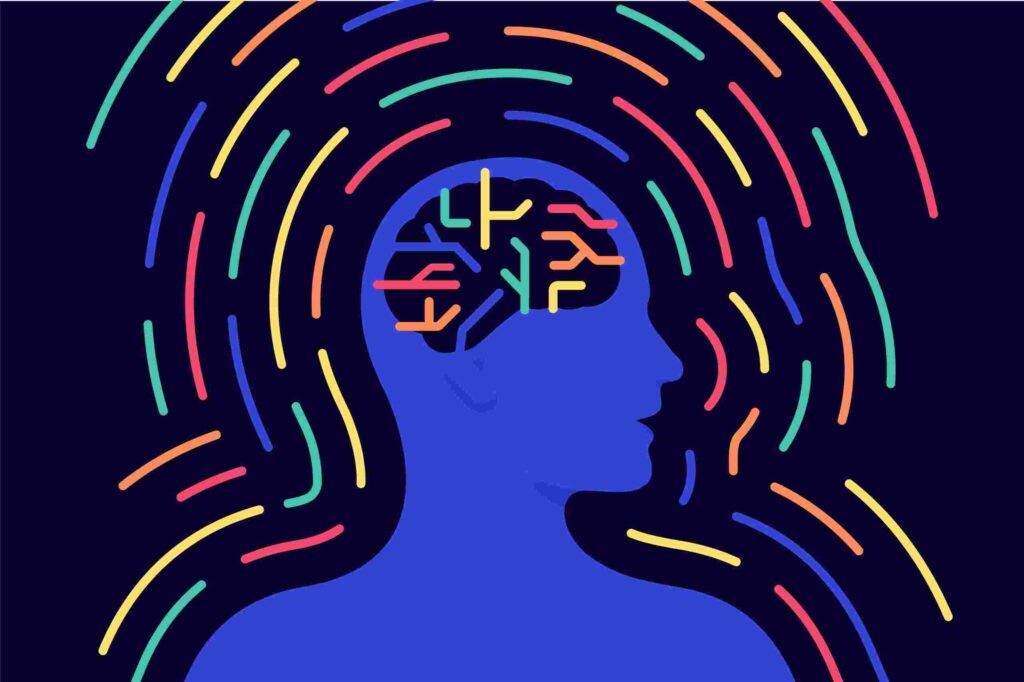Brain vs Mind vs Consciousness: A Psychological and Cognitive Exploration

The relationship between the brain, mind, and consciousness has fascinated philosophers, psychologists, and neuroscientists for centuries. While these concepts often overlap, they are distinct in important ways. Understanding the differences between the brain vs mind vs consciousness is essential for gaining a comprehensive understanding of human cognition, behavior, and experience. In this article, we will explore these three interconnected phenomena from psychological and cognitive perspectives, delving into their individual roles and how they work together to shape the human experience.
The Brain: The Biological Foundation

The brain is the physical organ that serves as the central hub of the nervous system. It is composed of billions of neurons and trillions of connections, facilitating communication between different parts of the body. From regulating basic bodily functions like heartbeat and breathing to more complex tasks like decision-making and emotional regulation, the brain is responsible for a vast array of biological processes.
In the context of brain vs mind vs consciousness, the brain represents the tangible, biological component. Neuroscientists have long studied the brain to understand its intricate structure and functions, discovering that different areas of the brain are responsible for specific tasks. For instance, the prefrontal cortex is involved in higher-level thinking and decision-making, while the hippocampus is crucial for memory formation.
Research in cognitive neuroscience has shown that the brain operates as an intricate machine, with different regions interacting to produce thoughts, emotions, and behaviors. However, while the brain can be mapped and measured, it does not fully account for the subjective experience of consciousness or the intangible qualities of the mind.
Brain as Hardware in Cognitive Science
In cognitive science, the brain is often likened to the hardware of a computer, the physical apparatus necessary to run programs and execute tasks. This analogy helps clarify the brain vs mind vs consciousness debate, illustrating that the brain provides the material substrate for mental processes. Without the brain, there would be no platform for thoughts, emotions, or conscious awareness.
The brain’s neural networks are continuously firing, processing sensory inputs, storing memories, and facilitating responses to external stimuli. Yet, despite its critical role, the brain alone does not encompass the entire realm of human experience. The mind and consciousness extend beyond the brain’s physical structure, adding layers of complexity to our understanding of cognition and subjective experience.
The Mind: The Realm of Thought and Perception

While the brain is a physical entity, the mind refers to the realm of thoughts, beliefs, emotions, desires, and perceptions. It is often described as the software running on the brain’s hardware. The mind allows individuals to interpret sensory information, engage in abstract thinking, and form internal representations of the external world.
The brain vs mind vs consciousness distinction becomes clearer when we consider that the mind is not confined to the physical structure of the brain. Instead, it is the locus of mental activity, encompassing cognitive processes such as perception, memory, reasoning, and problem-solving. The mind can also be understood as the space where individuals experience their inner world — thoughts, emotions, and personal interpretations of reality.
Mind in Cognitive Psychology
Cognitive psychology, the study of mental processes, provides insights into the brain vs mind vs consciousness relationship. Cognitive psychologists focus on how people acquire, process, and store information, examining processes like attention, language, problem-solving, and decision-making. These functions reside in the mind, which serves as the intermediary between the external environment and internal responses.
For example, when you look at a beautiful landscape, the brain processes the visual stimuli, but the mind interprets what you are seeing. It forms a perception based on previous knowledge, emotions, and personal preferences, making the experience subjective. Thus, while the brain processes raw data, the mind transforms it into meaningful experiences.
The Unconscious Mind
Sigmund Freud’s psychoanalytic theory introduced the idea of the unconscious mind, which plays a pivotal role in the brain vs mind vs consciousness discourse. Freud argued that much of human behavior is driven by unconscious desires and motivations, inaccessible to conscious awareness but still influencing thoughts and actions.
In cognitive terms, the unconscious mind encompasses automatic processes that occur outside of conscious awareness. These include habits, biases, and implicit memories that shape our behavior without our direct knowledge. Modern psychology has built on Freud’s ideas, recognizing that unconscious processes are essential for everyday functioning, such as driving a car or typing on a keyboard, without actively thinking about the steps involved.
The unconscious mind underscores the complexity of the brain vs mind vs consciousness distinction. While conscious awareness is limited to what is actively processed in the present moment, the unconscious mind operates in the background, drawing from past experiences and ingrained patterns to influence thought and behavior.
Consciousness: The Subjective Experience

Consciousness is perhaps the most enigmatic aspect of the brain vs mind vs consciousness triad. It refers to the state of being aware of one’s thoughts, feelings, and surroundings. Consciousness allows individuals to have a sense of self, make decisions, and experience the world in a subjective manner. Unlike the brain, which can be studied and dissected, consciousness is elusive and difficult to measure scientifically.
One of the central questions in psychology and cognitive neuroscience is how consciousness arises from the brain. This problem, often referred to as the “hard problem of consciousness,” was coined by philosopher David Chalmers. It asks how subjective experience (the “qualia”) emerges from physical processes in the brain. Despite significant advances in neuroscience, the exact nature of consciousness remains a mystery.
Levels of Consciousness
From a cognitive perspective, consciousness can be divided into various levels. Psychologist Sigmund Freud conceptualized consciousness in terms of three distinct layers: the conscious, preconscious, and unconscious. Later theories expanded on these ideas, acknowledging that consciousness exists on a spectrum, ranging from full awareness to altered states like sleep, hypnosis, and meditation.
- Conscious Awareness: This is the state in which we are fully aware of ourselves and our surroundings. It allows for intentional actions and decisions. For example, when you are engaged in a conversation or solving a math problem, you are in a state of conscious awareness.
- Preconscious Mind: This refers to thoughts and memories that are not currently in conscious awareness but can easily be brought to mind. For instance, you may not always be thinking about your home address, but you can recall it when asked.
- Unconscious Processes: As mentioned earlier, these are mental activities that occur without conscious awareness, including instincts, drives, and repressed memories.
Altered States of Consciousness
In addition to normal waking consciousness, humans can experience altered states of consciousness. These altered states provide further insights into the brain vs mind vs consciousness debate. Examples include:
- Sleep and Dreams: Sleep is a natural, recurring altered state of consciousness in which awareness of the external environment is reduced. Dreams, which occur during REM sleep, represent another form of consciousness, where the mind constructs vivid images and scenarios without sensory input from the external world.
- Meditation: This practice involves focused attention and altered awareness, often leading to heightened states of consciousness. Meditation provides an example of how individuals can influence their consciousness and mental processes through deliberate practice.
- Psychedelic Experiences: The use of certain substances like LSD or psilocybin can produce profound changes in consciousness, leading to altered perceptions, emotional experiences, and a sense of unity with the universe. These experiences challenge traditional ideas about the relationship between the brain vs mind vs consciousness, as they suggest that the brain’s neurochemistry can drastically alter subjective experience.
The Interplay Between Brain, Mind, and Consciousness

While the brain vs mind vs consciousness distinction helps clarify the different aspects of human cognition, it is essential to recognize that these elements are deeply interconnected. The brain provides the physical foundation for the mind, which in turn generates conscious awareness. At the same time, consciousness can influence the brain’s functioning, as seen in phenomena like neuroplasticity — the brain’s ability to change and adapt in response to experience.
For example, when an individual learns a new skill, such as playing the piano, conscious practice leads to the formation of new neural pathways in the brain. This process highlights how consciousness (the subjective awareness of learning) can directly impact the brain’s structure and function.
Cognitive Neuroscience and the Integration of Brain, Mind, and Consciousness
Cognitive neuroscience, the interdisciplinary field that bridges psychology and neuroscience, seeks to understand how brain activity gives rise to mental processes and consciousness. Through techniques like functional magnetic resonance imaging (fMRI) and electroencephalography (EEG), researchers can observe the brain in action, identifying specific areas involved in different aspects of cognition.
Despite the advances in cognitive neuroscience, many questions remain about the relationship between the brain vs mind vs consciousness. For instance, while we can map brain activity associated with specific tasks, such as recognizing a face or solving a puzzle, this does not fully explain the subjective experience of those tasks. The question of how neural firing patterns give rise to the feeling of recognizing a familiar face is one of the central challenges in the study of consciousness.
The Philosophical Dimension
The brain vs mind vs consciousness debate also has a rich philosophical dimension. One of the most enduring questions is whether the mind and consciousness are simply products of the brain or whether they exist as separate entities. This question taps into the classic debate between materialism (the idea that everything can be explained by physical processes) and dualism (the idea that the mind and body are distinct).
René Descartes, a 17th-century philosopher, famously argued for a form of dualism, suggesting that the mind and body are separate substances. In contrast, contemporary neuroscience tends to support a materialist view, proposing that mental processes and consciousness emerge from brain activity. However, even within the materialist framework, the precise nature of consciousness remains elusive, prompting continued debate and investigation.
Conclusion: Understanding Brain vs Mind vs Consciousness
In summary, the concepts of brain vs mind vs consciousness are distinct yet interrelated. The brain is the physical structure that underpins all mental activity, the mind encompasses thoughts and perceptions, and consciousness represents the subjective awareness of those thoughts and perceptions. While cognitive neuroscience has made significant strides in understanding how these elements interact, many questions remain about the nature of consciousness and its relationship to the brain.
The study of brain vs mind vs consciousness remains a central focus in psychology, neuroscience, and philosophy. As our understanding of the brain deepens and new technologies emerge, we may come closer to unraveling the mysteries of consciousness and its connection to the brain and mind.
